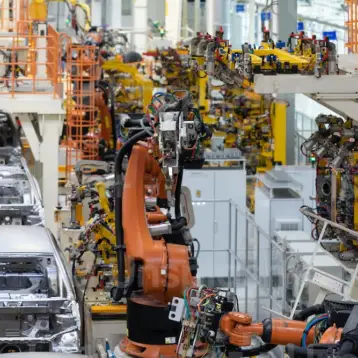
If you run an energy-intensive company, you could understandably struggle to rein in its carbon footprint. The information and communication technology (ICT), healthcare and manufacturing sectors are among those relying especially heavily on continuous energy usage.
According to one recent study cited in a LinkedIn article, ICT alone will be responsible for 14% of global carbon emissions by 2040 if trends in the sector continue at the current rate. However, a wide range of companies can take the following measures to lower their ecological impact.
Undertake an internal audit of the company’s power usage
You can’t reduce what you can’t measure — and you could find that, by thoroughly analysing many of your company’s practices and processes, you are able to identify some that add needlessly to the carbon emissions your organisation generates.
For example, it could come to your attention that your company would be able to easily swap out a fossil-fuel power source for a renewable alternative, or certain electrical appliances are too often left running when they aren’t being used.
Install solar panels
These can provide your business with its own source of electricity and so reduce the amount you would need to buy from elsewhere. You can also lessen your organisation’s reliance on unsustainable energy sources like coal and natural gas.
Green Journal points out that, once installed, “the solar panels are low maintenance and can secure energy for the building for up to 25 years.” You will also be able to slash your company’s financial outlay on energy.
Make sure you have a high-quality UPS system
Techopedia defines an uninterruptible power supply (UPS) as “an enhanced battery system that will self-activate in the event of a power disruption and function as the primary power source until electronic devices can safely be shut down or an emergency generator takes over.”
Investing in a reliable UPS power supply can thus help you to ensure that, even in the event of a power outage, your business will be able to continue running on renewable electricity.
Encourage your employees to car share
The car sharing itself could be arranged for when employees travel to the workplace in the morning and back home later in the day. However, if you will be sending some members of your team away on the same business trip, a car could be shared then, too.
Whenever a number of your employees do share a car for undertaking work-related responsibilities, the result can be an appreciable reduction in your company’s carbon footprint.
Install EV charging points at your corporate premises
The idea here is that those EV (electric vehicle) charging points would be available for employees and clients of your company to use when at the premises.
Having these charging points in place can thus incentivise many people associated with your business to abandon traditional, petrol-reliant vehicles in favour of electric alternatives — if, indeed, they haven’t done so already.
If these people have already joined the EV revolution, those charging points could give them an additional reason to stick with it.










